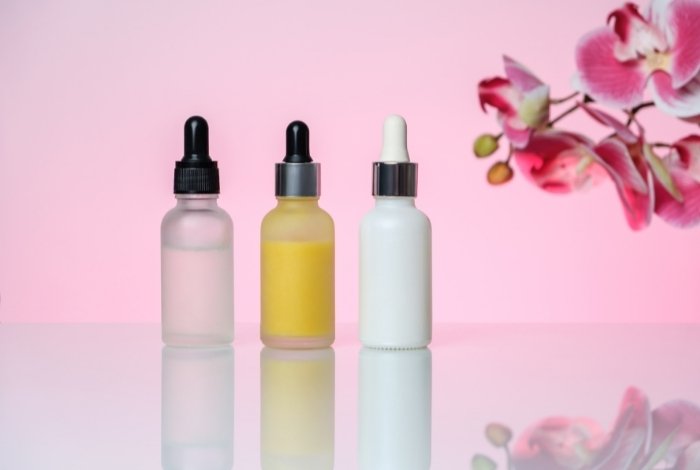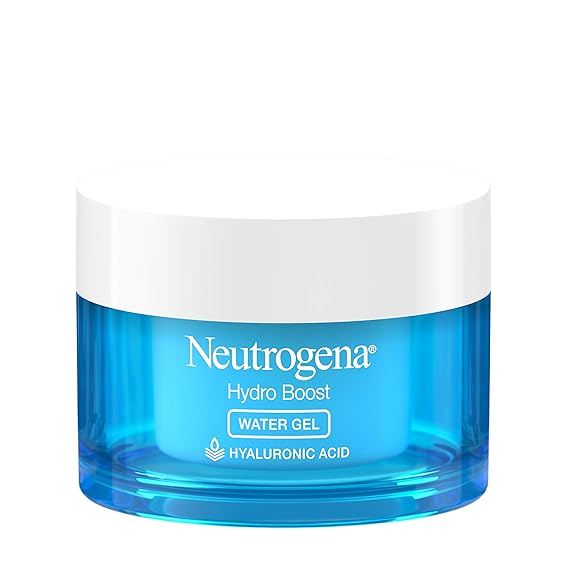How effective is a DIY vitamin C serum with hyaluronic acid? This and many more you will learn during the entirety of this read.
If you go through your beauty products carefully, you will find out two ingredients are often combined. You will see that vitamin C, also called ascorbic acid, is often paired with hyaluronic acid. This isn’t a coincidence. It is because both ingredients seem to work hand in hand to promote skin health.
Hyaluronic acid is very effective at moisturizing the skin. At the same time, vitamin C protects the skin from sun damage. It also helps to combat skin discoloration. Both ingredients are helpful to combat premature aging and are most sought-after by older adults.
Vitamin C
Research has taught us that vitamin C is a natural antioxidant that is present in the skin. It fights against the damage that UV lights generate. It also helps to protect the human body from sun damage. Experts claim that vitamin C might just be the best antioxidant that is accessible for topical use. It is cheap, it is accessible, and it is very convenient.

Vitamin C serum might help the skin in the following ways:
- Acts as a protection to the skin from damaging UV rays
- Act as protection from exudative stress, hence combating premature aging
- Stimulates collagen synthesis
- Exfoliates the skin
- Lowers skin pigmentation
- Possess inflammatory properties that help treat conditions like acne and rosacea
- Clears dark spot
Hyaluronic Acid
Did you know that hyaluronic acid is naturally found in bones, hair follicles, cartilage, and tissues.? It is a molecule that is naturally formed by the body. It helps the skin to retain the necessary moisture to promote healthy skin.
Hyaluronic acid is an excellent moisturizer. This is because it can hold a thousand times its weight in water. It is great at locking in moisture and stimulating texture. You will also find it similar to a sponge as it combines with water and drags it into the outer skin. Experts have suggested that this ingredient is beneficial in the following ways:
- acts as a very effective moisturizer
- reduces the appearance of wrinkles
- promotes firmness and elasticity
- repairs and develops a healthy skin
Adults mostly use this product because it helps with aging skin. As we get older, our body begins to lose water. This makes it hard to retain moisture. This ingredient is beneficial in storing hydration. This, in turn, provides softer, plumper, and healthier-looking skin.
Combining both vitamin C and hyaluronic acid will get you an excellent beauty product. But did you know that you can make a DIY vitamin serum combined with hyaluronic acid?
To make a DIY solution, you need the following items:
- 11/2 tablespoon of distilled water
- 1/2 tablespoon of vitamin C. Ensure that it is pharmaceutical grade
- 1/2 tablespoon liquid form of hyaluronic acid
- Eyedropper bottles
How To Make The Solution
- Put water in a small container or shot glass.
- Put your vitamin C into the water to dissolve. Well, I prefer the powdered form of ascorbic acid. This is because it is much quicker to dissolve.
- Pour your solution into the eyedropper container. Wait for about 3-5 minutes for the solution to dissolve properly.
- When the solution has dissolved, add your hyaluronic acid. Mix both solutions properly.
Neutrogena Hydro Boost Hyaluronic Acid Hydrating Water Gel
There you have it, a homemade beauty solution. Keep in mind that this solution would not be effective after a month of preparation. After a month, oxidation begins to occur, and the solution becomes yellow. So, make sure to discard use after a month of practice.
Why Does DIY Vitamin C Serum With Hyaluronic Acid Work Well Together?
If you are looking for excellent ingredients for skincare products, look no further than ascorbic and hyaluronic acid. Combining both ingredients make for a great beauty regimen.
Both ingredients are commonly used because they complement each other’s functions. One hydrates and moisturizes; the additional repairs and protects. There is another reason why both ingredients are often combined.
Research tells us that too much vitamin C can cause irritation and dryness. It can even cause breakouts. It is why hyaluronic acid is introduced to help create a moisture barrier and provide repairs and regeneration.

What is The Best Vitamin C and Hyaluronic Acid Serum?
There are many different serums with vitamin C and hyaluronic acid available on the market, however, not all of them will suit each of us, so the best one for you will depend on your specific skincare needs and preferences.
There are a few crucial aspects to consider while choosing the finest vitamin C and hyaluronic acid serum:
Formulation: Look for a serum that is formulated with a stable form of vitamin C, such as ascorbic acid or L-ascorbic acid, as these forms of vitamin C are much more stable and effective compared to some others such as sodium ascorbyl or magnesium ascorbyl phosphate. Additionally, look for a serum with a high percentage of hyaluronic acid, since this will help to enhance the moisturizing and plumping benefits on the face.
Packaging: Choose a serum that comes in hermetically sealed, opaque packaging to protect the ingredients from light and air.
Brand reputation: Always opt for a reputable brand with good customer reviews. Our sincere recommendation is to take some time to research the brand and read reviews from other customers to get an idea of the quality and effectiveness of their products.
Price: Last but not least, consider your budget and choose a serum that fits your price range.
Now let’s move on to the key part, some popular, yet proven to do their job perfectly vitamin C and hyaluronic acid serums are The Ordinary Vitamin C Suspension 23% + HA Spheres 2%, Paula’s Choice RESIST Super Antioxidant Concentrate Serum with Vitamin C, and Olay Regenerist Retinol 24 Night Serum.
Does Vitamin C Have Hyaluronic Acid?
As you probably already know, vitamin C and hyaluronic acid are two beloved skincare ingredients that are often used together due to their complementary benefits. In short, vitamin C is an antioxidant that protects the skin from environmental aggressors and has the power to promote collagen formation, whilst hyaluronic acid is a humectant that hydrates and plumps the skin.
However, for all those who might be able to come up with the opposite idea, it’s important to note that vitamin C and hyaluronic acid are two separate ingredients that naturally don’t occur together in the same molecule. Thus, vitamin C is usually found in the form of ascorbic acid or its derivatives, while on the other hand, hyaluronic acid is a polysaccharide that the body naturally produces.
Truth be told, it’s no wonder where so much confusion comes from, as many skin care products can combine vitamin C and hyaluronic acid in the same formula, as they can work well together to improve the overall appearance and health of the skin. The simplest example: to give extra hydration and a plumping effect, vitamin C serum may be mixed with a tiny amount of hyaluronic acid.
How Do You Make Vitamin C and Hyaluronic Acid at Home?
While we support occasional experimentation and playing with cosmetics, we wouldn’t recommend you take the plunge and make some formulations yourself. The thing is, it’s generally not recommended to get involved in some things because it can be difficult to get the necessary ingredients and equipment, and not to forget, there is also a high risk of contamination or irritation if you get it wrong.
Keep in mind that vitamin c is an extremely delicate molecule that can oxidize and lose its effectiveness in seconds when exposed to air and light, while hyaluronic acid on the other hand is a complex molecule that is difficult to synthesize at home. At the end of the day, it is important to emphasize that it is quite difficult to obtain all the necessary ingredients and equipment to make stable and effective products.
Is Vitamin C and Hyaluronic Acid Good For Oily Skin?
Vitamin C and hyaluronic acid are two skincare ingredients that have gained popularity in recent years due to their potential benefits for the skin, especially for those who deal with the oily type.
Vitamin C is, as we have already mentioned, an antioxidant that protects the skin from environmental damage caused by pollution and UV radiation, and is known to have skin-brightening and lightening effects, which makes it one of the most popular ingredients for reducing the appearance of hyperpigmentation, such as dark spots and uneven skin tone.
Furthermore, hyaluronic acid is a naturally occurring molecule present in the skin that plays an important function in hydration and moisture levels, and in addition, helps to plump and smooth the skin, making it seem youthful and more luminous. It is also non-comedogenic, which means it doesn’t clog pores and is thus excellent for oily skin.
Finally, remember that it is extremely important to use a low concentration of vitamin C, as high concentrations can irritate the skin and cause dryness and flakiness, and that hyaluronic acid should be applied to damp skin, as this will help retain moisture and prevent the skin from becoming too dry. So, to conclude, these two skincare miracles can be beneficial for oily skin when used in the right way and the right formulations.
Take Away
As the skin ages, it begins to lose its elasticity and firmness. It becomes to look dry and less moisturized. Vitamin C helps the body to fight against oxidative damage. It is mostly applied to beauty products because of the qualities it possesses. Hyaluronic acid, on the other hand, ensures moisturization. It provides a glow and improves premature aging.

